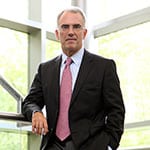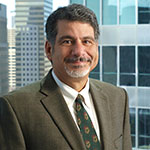Dealing with an affluent clientele on a daily basis can give you a misconception about the economic reality faced by the majority of Americans—especially recent immigrants. You have to remind yourself that well-to-do individuals represent only a small percentage of people who live in the United States.
I remember working as an in-house lawyer for a company focused on the affluent market (those with $5 million or $10 million life insurance policies) when I got a call from an upset life insurance producer. He complained that one of his employees filed for unemployment after getting discharged and wanted to know the next steps to oppose the claim. The producer, having some sort of consistent income or other assets, had never filed for unemployment in the 40 years of his working life. Hence, he took the claim as an affront. Even though the producer may have been justified in terminating that individual, I found it unusual for him to have been shocked and angry that someone would have the nerve to file unemployment. People will do what is necessary to provide for themselves and their families.
I know the producer was a good person, yet as a result of his economic background, he could not conceive of anyone taking the step to file for unemployment. He simply did not understand the situation. The wealthy don’t have to worry about getting food on the table, needing medical services, or about how to pay for their children’s education. His surroundings and peer group had impacted his perception of reality. I vowed not to put myself in a position where my economic stability would bias my perception of others.
That was one of the reasons I chose to get involved in a number of nonprofit organizations: to keep myself balanced. I refused to let myself forget that there’s another group of people out there who need help. I enjoy doing legal work for large corporations but feel the need to give back. Just as others helped me throughout my education and professional life, I wanted to pay it forward. I began doing so by joining organizations that serve the poor and immigrant communities, four years after I graduated from Columbia.
My first corporate job offered the opportunity to work for nonprofits on a volunteer basis. I became a board member of the Shelter for Women, Inc. That led to board membership for various other organizations (Catholic Family Services for the Hartford, CT branch; the American School for the Deaf; and the Institute for the Hispanic Family, an agency of Catholic Charities that focuses on providing social, mental, and health services for the Hispanic community). I joined the board of trustees for Catholic Charities, and for the past eight years, I have been the chairman for the board of trustees for Catholic Charities for the Archdiocese of Hartford, where 90 percent of our clientele are below the poverty line.
There are a handful of success stories involving immigrant families who have focused on education and whose children have been able to graduate from college and have successful careers. On the other hand, there are many more situations where education is not as greatly emphasized, and the next generation is still in the same economic stratum as the previous.
Education is the way out. My parents were immigrants who recognized the importance of taking advantage of the opportunity for education provided in this country, and they made sure their sons would benefit from it. We lived in the Bensonhurst area of Brooklyn, NY. With only their high school degrees, my mother was a stay-at-home mom, and my father was a dental technician. We were poor, and my parents’ measure of success was that we had food on the table and paid the rent. When my brothers and I were young, my father would sit with us and go through our notebooks to review any teacher notes from elementary school. He couldn’t read English very well, but he could recognize when the teacher made a bad notation. That was one of his ways of instilling in us the importance of school.
When I went off to college, my father gave me a plaster mold of a perfect set of teeth. I’ve kept those teeth with me through college and all my jobs. It reminds me of the sacrifices my parents made, of the difficulties they encountered as immigrants, and the guidance they gave my two older brothers and me to focus on education. I congratulate my parents for raising a doctor, a pharmacist, and a lawyer. I did the same with my three daughters.
I never want to forget my roots nor the responsibility each of us has to lend a hand to another in need. I continue to serve the community in remembrance of my roots. In recognition of those who helped me, I have the obligation to assist others.

